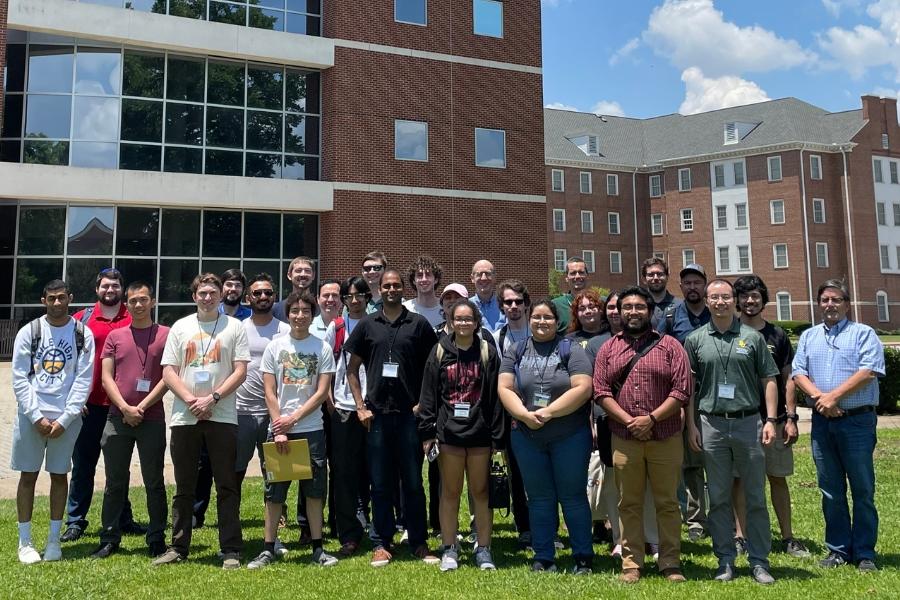News
The United States issued a joint statement with several other nations identifying key principles for the research and development of 6G wireless communication systems. These principles include a focus on security, openness, and resiliency at the foundation of 6G designs. The statement also identifies the importance of spectrum sharing techniques and coexistence with incumbent users in bands utilized by 6G systems.
The Federal Communications Commission (FCC) Office of Engineering and Technology (OET) has approved seven Automated Frequency Coordination (AFC) systems for use in the 6 GHz band. This action will allow approved unlicensed standard-power devices to coexist with existing incumbents within the 6 GHz band, enabling new usages of the wireless spectrum.

WACO, Texas (Jan. 17, 2024) – Baylor University today officially announced the launch of the Spectrum Management with Adaptive and Reconfigurable Technology Hub (SMART Hub), a Department of Defense Spectrum Innovation Center to conduct multifaceted spectrum research to meet national defense needs.
The Wireless Innovation Forum (WInnForum) announced today that they have bestowed this year’s coveted President’s Award to two recipients: Dr. Austin Egbert and Idan Raz at its Annual Meeting.
To alleviate the conflict between limited radio frequency (RF) spectrum resources and increasing wireless traffic demands, spectrum sharing has been regarded as a natural technique to increase spectrum efficiency and utility for next generation (e.g., 6G) wireless system design and deployment, and is expected to generate huge scientific, societal, and economic value.
The White House's National Spectrum Strategy establishes near- and long-term guidance to modernize the United States’ spectrum policy.
The Department of Commerce (DoC) and its National Telecommunications and Information Administration (NTIA) comment are seeking industry insight on how to modernize the technology that NTIA uses to manage the use of radio frequency spectrum.
The spectrum business goes to the highest bidder. But what problems does that pose in the long run? (Andy Clegg at Mind Matters)
In Episode 145 of the Aerospace Advantage, Regaining the Spectrum Warfare Advantage: Leadership Conversation, Doug Birkey chats with the commander of the 350th Spectrum Warfare Wing, Col Joshua Koslov to discuss the current state of this mission area, explain challenges and opportunities, define key concepts, and provide insights on future vectors.

“Events like this are a great way to get students engaged and excited about the opportunities and challenges involved in spectrum science," says John Chapin, NSF's Special Advisor for Spectrum. “The demand for trained spectrum experts in the U.S. is only growing and it's a rewarding career path for students who want to work on important and interdisciplinary topics.”
The Air Force Research Laboratory has started soliciting information on technical approaches and concepts to evaluate, adapt and redeploy artificial intelligence models in the battlespace during missions.
Personal devices using the 5G network could cause a national crisis. In the world of consumerism and commercial technology, the spectrum impacts many consumer devices. What many fail to recognize are the other industries competing with personal devices to use the spectrum as well.